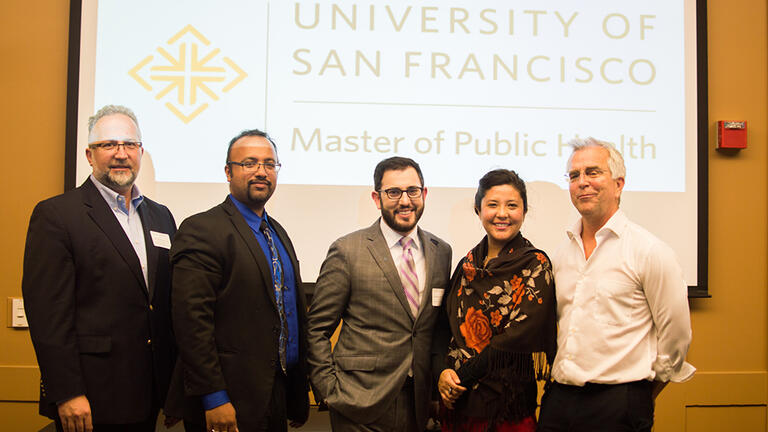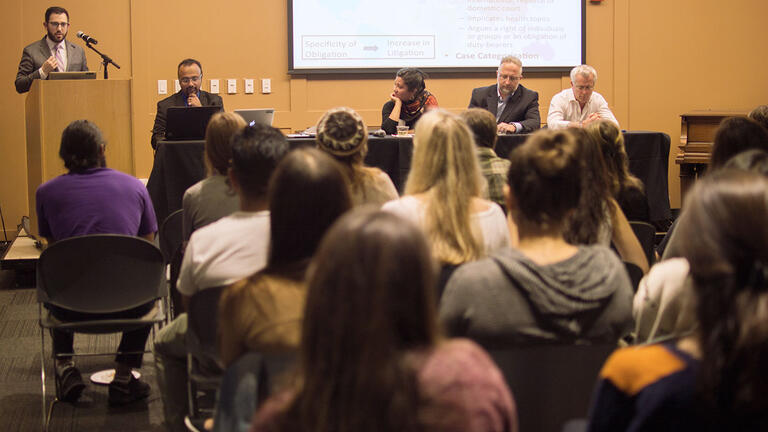
Health and Human Rights Symposium
The University of San Francisco coordinated a symposium on October 6, 2015 that discussed a number of issues regarding health and human rights.

Dr. Ana Ayala followed with similar ideas, discussing how the law is a fundamental tool for solving critical health problems. Through research, capacity building, and scholarship, her organization strives to bring the health and human rights community together and to provide a starting point for further research and practice. A defined right to health creates opportunity, and there is a need in modern society to measure the impact of human rights standards.
Dr. Marco Tavanti expanded upon the previous discussion by introducing the complexity of indigenous populations. He advised that we must always consider indigenous dignity and recommended the use of sustainability as a transferable framework across cultures. His conclusion was that oftentimes the health community sees the problem and immediately goes to work finding a solution. But instead, we need to focus on the middle step of reflection and analysis and should include various cultural viewpoints.

Overall, I found the discussion to be extremely interesting and found the spectrum of opinions to be extremely powerful. As public health officials work to improve the health of populations around the world, research around the legal framework of health should be considered. Human rights frameworks have proved successful in the implementation of various interventions, and the health community should learn from other forms of human rights accomplishments if they wish to best utilize the data that exists for overall health and human rights improvements.